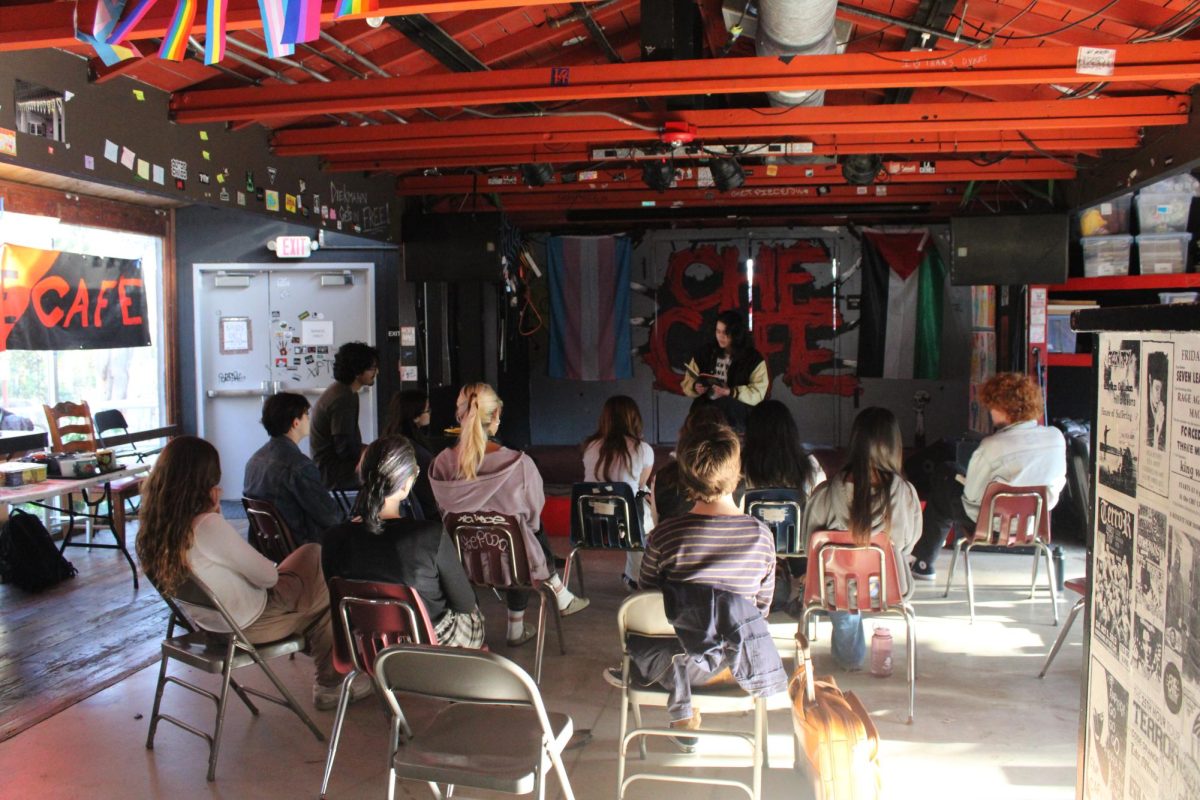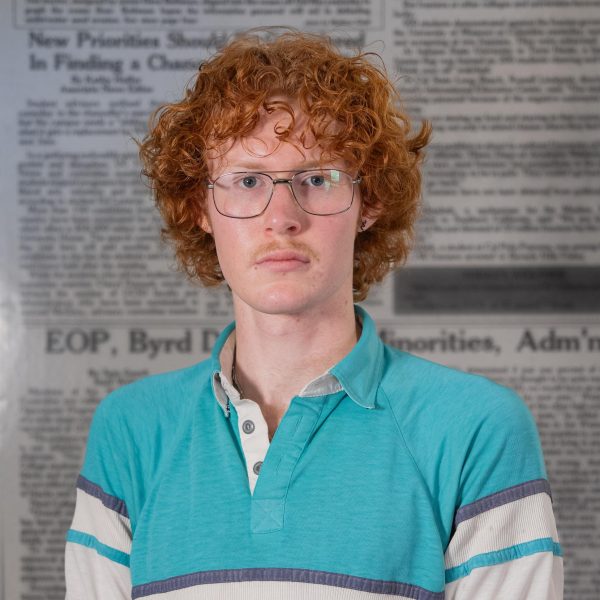Every Tuesday at 5 p.m., artists gather at the Che Café to recite their poetry live on stage. Titled New Worms, UC San Diego students Amiran Antadze and Andrés Cáliz began this poetry event and club in December 2024 to quench their thirst for poetry.
The two wanted to reignite their creative writing by providing people an open forum to mold and define as their own. New Worms has no formal guidelines or sign-up process: anyone can show up, find a seat, and perform any material they like, whether that be their favorite pieces of canon to original writing.
Antadze and Cáliz aim to encourage artistic experimentation by making New Worms highly malleable, providing freedom for the performer.
“After that first meeting, I realized [New Worms] would be completely dictated by the people and the ideas and verse they brought into the space,” Cáliz said. “New Worms has its own lifetime.”
According to Antadze and Cáliz, Che Café provides the perfect venue for their informal club. The Che is experimental in its own right as a community-run cooperative, DIY venue, and soup kitchen. The venue welcomes nonconformity, with an interior adorned with pride flags, anarchist pamphlets, a community fridge stocked with free food, and band stickers plastering every inch of the bathrooms.
“The Che Café is unique in that everyone who walks in is already considered part of the collective,” Antadze said. “The vibe creates a level playing field where art can really thrive.”
Kathryn Reese, a regular performer at New Worms, said having a designated space to share poetry is invaluable because it can be difficult to find like-minded people that enjoy discussing literary art.
“I have feelings that are very convoluted, you know, hard to understand and verbalize,” Reese said. “The perfect poem can express complex feelings in so few words; having a space to share that work is so beautiful. It’s a special moment of collective effervescence.”
Reese is thankful New Worms provides an accessible space that is accepting of her writing, giving her the confidence to share deeply intimate and personal poetry. The air of respect for every performer helps Reese break free from self doubt and motivates her to perform at every session she can attend.
“Performing is a practice in breaking my perfectionistic tendencies; I usually hide everything that I’ve written from everyone in my life,” Reese said. “I always feel like it could be better, be more polished. But here I try to perform things that I only just wrote. Why else make art if you’re not sharing it?”
Antadze and Cáliz recalled one New Worms meeting that encapsulated the poetry club’s exhilarating energy of live, spontaneous performance. On a torrentially rainy Tuesday, Antadze and Cáliz entered the building and were grateful that three other people showed up despite the frightening weather conditions. They expected a shorter session, and after a couple performances Antadze began a scene from Shakespeare’s Julius Caesar to a small audience. Suddenly, a group of 12 people drenched in rain entered and caused a scramble to pull out more chairs. In the clamber, the singular performance became a group effort as new participants joined the stage and acted out the scene of Caesar’s assassination. Through a spark of inspiration, Cáliz dramatically extended his umbrella to accentuate the final stabbing of the titular character.
“When all those people joined, the stakes had been raised. It was electric,” Antadze said.
The live element imbues New Worms’ performances with excitement, undeniably enhanced by the elevated stage. Performers like Reese treat the stage like a canvas, adding authority to their words and encouraging uninhibited personal expression.
The collective experience is meant to embolden artists through reciprocal enthusiasm. Anyone can perform music, bits of a play, just talk, or experiment with silence. To those who may feel trepidations about sharing their art, Cáliz urges: “Do anything, get up there!”










